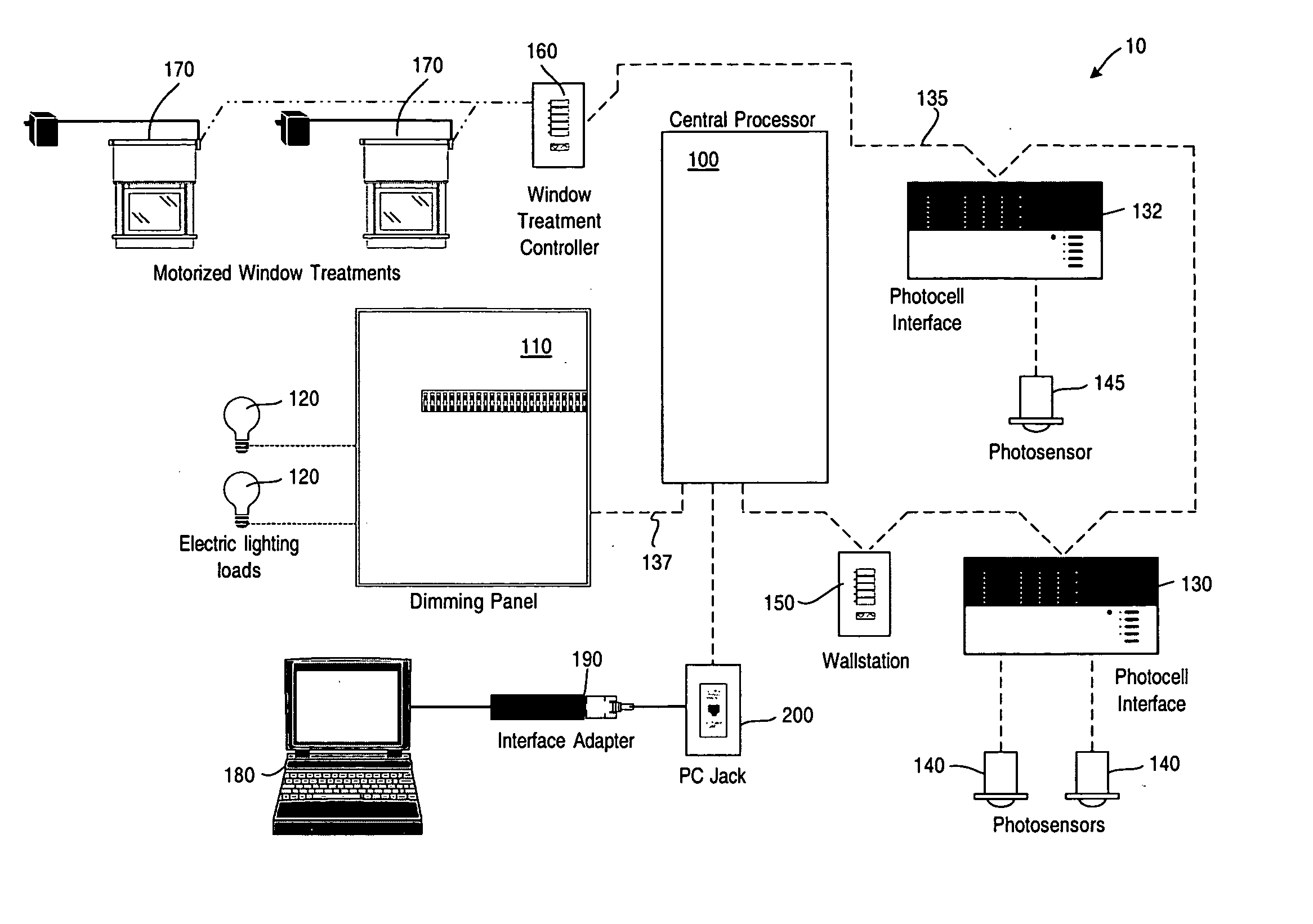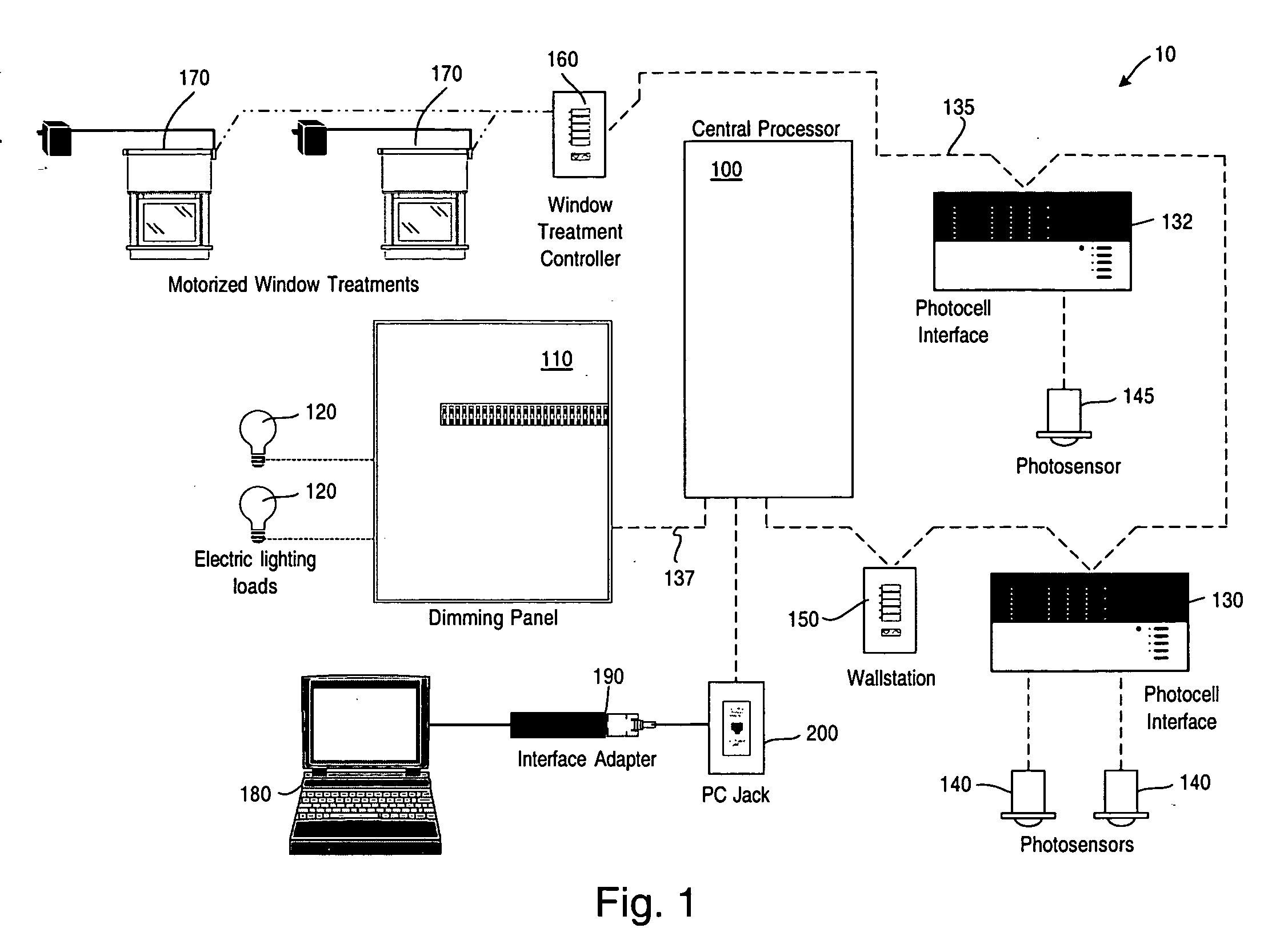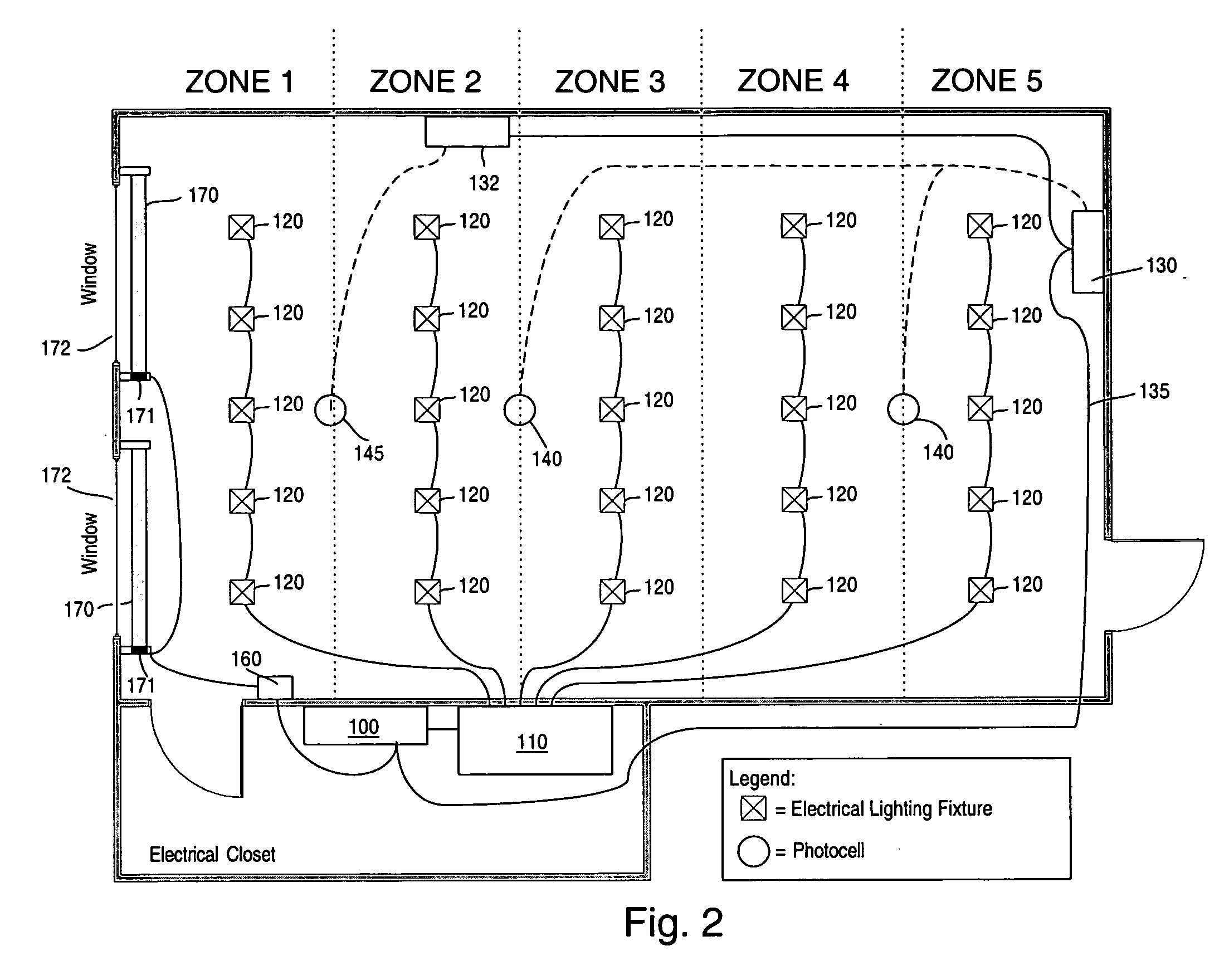System to control daylight and artificial illumination and sun glare in a space
a technology of artificial illumination and space, applied in the field of space control system, can solve the problems of maintenance problems, closed loop system, unsuitable open loop system for window treatment control, etc., and achieve the effect of reducing the overall system cost, optimal illumination control of the space, and controlling the sun glare in the interior spa
- Summary
- Abstract
- Description
- Claims
- Application Information
AI Technical Summary
Benefits of technology
Problems solved by technology
Method used
Image
Examples
Embodiment Construction
[0056] With reference now to the drawings, FIG. 1 is a block diagram of an embodiment of the invention for controlling the illumination levels in a space such as a room, where both daylight and artificial lighting act as light sources, as well as for reducing sun glare. The system 10 comprises a central processor 100 which may be a Lutron GRAFIK 6000® central lighting processor, for example, Model No. GR6MXINP. The central processor 100 has coupled thereto a dimming panel 110 which has various lighting loads 120 which can be any light source type including but not limited to incandescent, fluorescent, HID (High Intensity Discharge), neon, LED (Light Emitting Diode), LV (Low Voltage) coupled thereto and which are controlled by the dimming panel 110 in response to commands from the central processor 100 communicated via a digital communication link 137. The dimming panel may be a Lutron type GP12-1203ML-15. Photosensor interface 130 is coupled to the central processor via a digital co...
PUM
 Login to View More
Login to View More Abstract
Description
Claims
Application Information
 Login to View More
Login to View More - R&D
- Intellectual Property
- Life Sciences
- Materials
- Tech Scout
- Unparalleled Data Quality
- Higher Quality Content
- 60% Fewer Hallucinations
Browse by: Latest US Patents, China's latest patents, Technical Efficacy Thesaurus, Application Domain, Technology Topic, Popular Technical Reports.
© 2025 PatSnap. All rights reserved.Legal|Privacy policy|Modern Slavery Act Transparency Statement|Sitemap|About US| Contact US: help@patsnap.com



